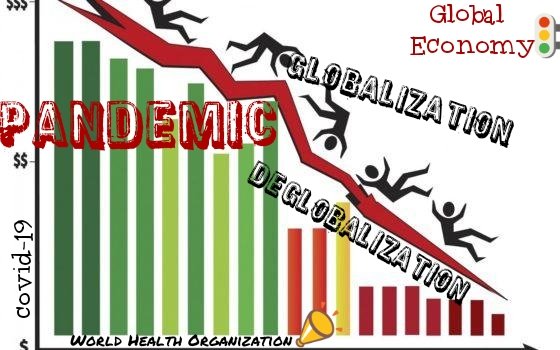
Image from google edited by me .
I am absolutely not an expert in economics, but I like to be informed about what is happening around me to get my opinion.
Especially in this period when a new virus is severely testing the scientific progress of all humanity.
It seems incredible that in a highly technological and developed historical moment, we find ourselves unable to manage a pandemic for now not yet the worst in history.
And in a handful of days everything went wrong.
In these last days of total chaos, especially in the stock markets, one wonders what the future economic scenario will be after the Coronavirus?
All who seek a culprit by pointing the finger at the Coronavirus that is afflicting over 120 countries around the world.
But are we really sure that the collapse of the stock market and of the whole economic sector is due to Coronavirus?
It is not that perhaps this pandemic has only brought to light the already existing fragility affecting the entire economic system, dragging with it every sector, including the equity, financial and oil sectors.
Now all over the world the main fear is an abrupt slowdown of the economy linked not only to psychological factors but also to the way in which the various affected countries implement the right anti-contagion measures.
Unfortunately, these measures provide for the blocking of many public and private activities keeping millions of people at home.
Yet the World Health Organization and the World Bank had already warned of the global unpreparedness to manage a possible pandemic in their study of September 2019 "Global Risks ".
Of pandemics that since 2000 have caused great losses of both lives and capital there have been a lot, since Sars of 2002-2003 which cost 40 billion dollars, the impact of H1N1 flu of 2009-2010 has been estimated between 45 and 55 billion dollars, and Ebola between 2014 and 2016 which shocked Africa by burning 53 billion dollars.
On Healthline the infections and deaths caused by past epidemics are explained in detail.
Today Coronavirus is confirming that economic systems on which our societies are based are FRAGILE, that the unbridled race to production without ever considering the environmental limits and the respect of social and hygienic-sanitary rules at a certain point gives us all a bill to pay and this time it is really salty.
The continuous search for lower and lower production costs pushes companies to physically move the production sites to countries where low labor and production costs are guaranteed, among these is China.
China has grown dramatically in recent years, occupying an important place in the global economy, on the manufacturing front but also on the trade front.
The pandemic that brought China on its knees initially spread along the supply chains, first touching Italy, gradually involving much of Europe and now all over the World.
In 2003, the Chinese economy was worth about 4% of the world's gross domestic product and today its weight has quadrupled to 16%.
The areas most connected with the Chinese market are the countries of Asia with a value of 1195 billion dollars, those of Europe with 477 billion and North America for 465 billion.
Here more detailed data.
China is an important supplier of intermediary goods in many sectors, it is on Chinese territory that the production but also assembly phases of many products take place.
China is also the **largest buyer of raw materials ** in the world: $ 500 billion in imports in 2018 and over 300 billion in 2019.
In addition, China is a large consumer market, in 2018 the Chinese spent 115 billion dollars on luxury goods, that is, about a third of world spending.
Same for tourism, the Chinese who travel move about 270 billion dollars in the world tourism sector.
I think we understood today an important thing: if China stops, all those countries whose companies have concentrated their production on Chinese territory also stop. But global trade and tourism are also affected by China's current situation.
If China stops we are all affected indifferently.
Coronavirus is showing the world the inadequacy of a globalization model based on the dependence of a single country as a supplier for many important sectors.
A striking example is that of the pharmaceutical industry, given that the companies that produce drugs in the world need the raw materials that mostly come from China.
I am convinced that GLOBALIZATION is fundamental because it allows all countries, even those with the most fragile economies, to be closely connected.
The problem arises when you depend too much on a single country.
Economists and financial analysts are wondering today about the post-Covid-19 period and someone suggests to focus on DEGLOBALIZATION : that is, countries must overcome their economic interdependence and focus on encouraging internal markets.
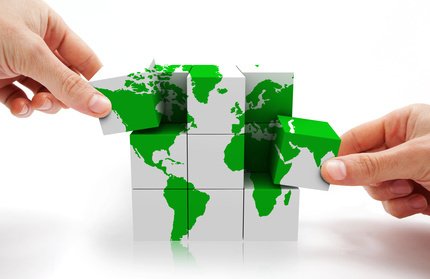
Image Source
But will DEGLOBALIZATION really be the best solution?
I cannot say if it is the right thing to do, but DEGLOBALIZATION reminds me very much of commercial protectionism and it scares me because this would increase nationalism at the expense of all the progress made so far thanks to the free movement of goods and people.
My opinion is that everything can be improved without resorting to drastic solutions.
We have built a globalized economy focused on goods and capital, freeing ourselves from the protection of labor, rights and the environment, instead conceived only as heavy costs to be cut.
Globalization is certainly not perfect, but it is the way it was developed and conceived that led us to where we are today and I think the time has come to review and rewrite the rules on which it is based.
GLOBALIZATION must focus today on correct and truly ethical development in order not to find ourselves again in the future in the stalemate of all world economies.
We must always learn from mistakes.
REFERENCES:
Thanks for stopping by here.
.
.
-I'm also on other blogging platforms.-
.
.

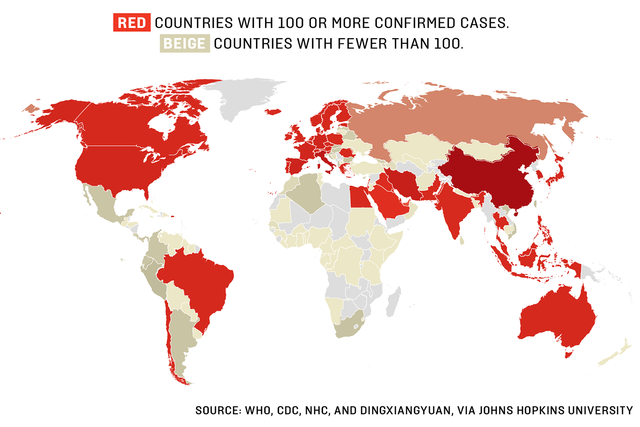
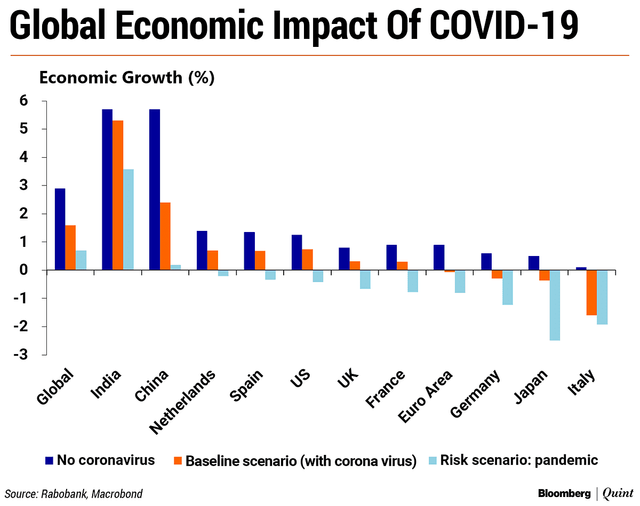

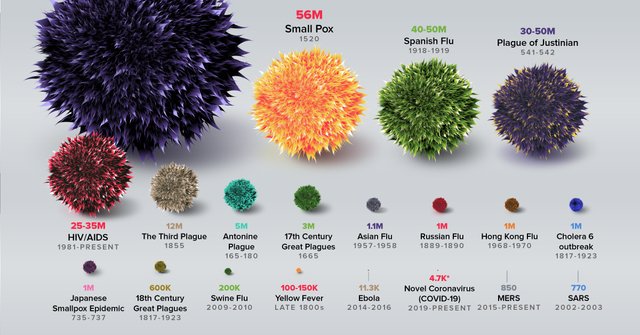
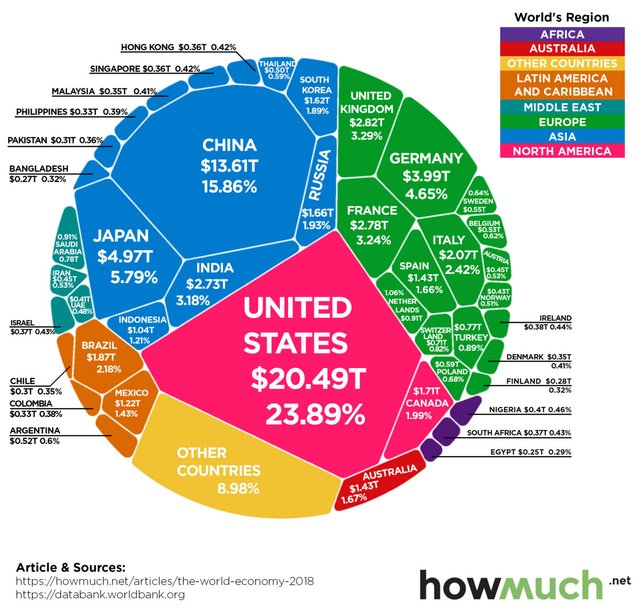
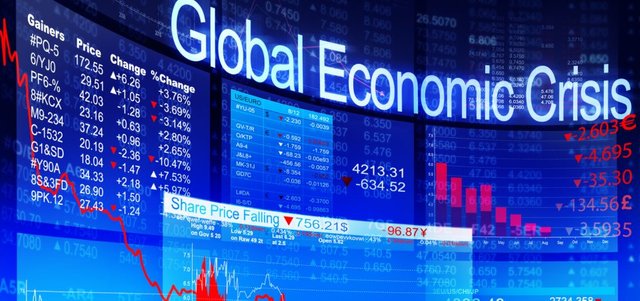

Well written!
I expect the world economy will move to a more distributed model.
There is always a thin line after which any complex dynamic system will collapse. With billions of people and more complex interactions each year, we have no choice but to try and keep a fragile balance.
General public and politicians are mostly fools, some mechanisms will not change.
Downvoting a post can decrease pending rewards and make it less visible. Common reasons:
Submit
I also hope that the world economy will soon move to a more distributed model. But it will be difficult to open an honest debate in which the capitalist system is truly challenged. But I want to be optimistic and see the light at the end of the tunnel. Thanks for your comment.😊
Downvoting a post can decrease pending rewards and make it less visible. Common reasons:
Submit
Downvoting a post can decrease pending rewards and make it less visible. Common reasons:
Submit
But this is the best time for you to make money.
Downvoting a post can decrease pending rewards and make it less visible. Common reasons:
Submit
Surely someone will know how to take advantage of this negative moment to make money.
Downvoting a post can decrease pending rewards and make it less visible. Common reasons:
Submit
Greetings friend @mikitaly.
This is a great article. Very well written.
Here you have raised some very important aspects. I believe that all the governments of the world should take this current situation as a turning point. We must turn around in the way we have developed finance and international relations. Globalization has flaws, but it is not a wrong model.
As you well stated at the end of your article:
The biggest mistake made was "Putting all the eggs in the same basket."
China strove to be a world giant and did it. But it is not their mistake.
The nations of the world found in China a producer of "quality" and very cheap technology. Thus they became the first choice of importers in the world.
Beyond the fragility that the global financial market has shown, I think we must think about what other weaknesses we have as a global, planetary community. As humanity.
Today was a virus. Tomorrow will be global warming. A meteorite that impacts the planet. Nations playing war with their weapons of mass destruction. A nuclear war.
Are we ready to face a global calamity?
Locked in our great ego we have forgotten that we live on the same planet and "it is the only one we have".
Thanks for sharing.
Your friend, Juan.
Downvoting a post can decrease pending rewards and make it less visible. Common reasons:
Submit
Hi Juan, thanks for reading my post I'm really glad you liked it. I agree with you on everything and in my opinion you have focused the real problem: the immeasurable ego of the human being.
We live on our planet without feeling connected to it, instead of adapting to the environment around us we transform it to our liking to the point of destroying it. But we can no longer continue like this, we have limited time to reverse the course.
Downvoting a post can decrease pending rewards and make it less visible. Common reasons:
Submit
Fortunately we have not yet reached the point of no return.
Downvoting a post can decrease pending rewards and make it less visible. Common reasons:
Submit